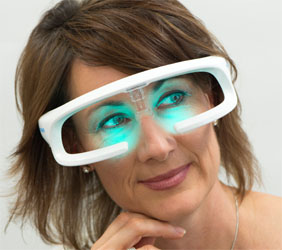Practical Tips for Better Sleep
Sleep is as important to disease prevention as diet and exercise, according to Timothy Morgenthaler, M.D., a sleep medicine specialist at Mayo Clinic and Director of the American Academy of Sleep Medicine who is featured in a new video on besmartbewell.com/sleep.
Yet, many adults fail to get the recommended amount of sleep—some because they struggle with sleep problems like insomnia and some because they simply don’t make sleep a priority.
BeSmartBeWell.com examines the importance of sleep and how to improve the quality of it.
[ Also Read: Efforts Are On to Cure Unslept Zombies ]Dr. Morgenthaler says, “Sleep should really be thought of as part of a three-legged table of health,” he explains in the video Honor Thy Sleep. “One [leg] is good exercise, one is good diet and the other is good sleep, and they’re all equally important.”
In the video, Dr. Morgenthaler provides practical tips for how to get more sleep, and a variety of people provide answers to questions about their own sleep habits. Together, the responses offer an eye-opening look at sleep in America.
[ Also Read: ‘World First’ Device to Solve Sleep Woes ]More than one-quarter of the U.S. population experience sleep problems, according to the Centers for Disease Control and Prevention, and an estimated 40 million people suffer from chronic, long-term sleep disorders, according to the National Institute of Neurological Disorders and Stroke.
The sampling of people interviewed for Honor Thy Sleep get anywhere from 2 to 8 hours of sleep a night. For people on the lower end of that range, it’s simply not enough sleep, Dr. Morgenthaler says. “To feel well-rested and to avoid adverse health consequences, the average adult needs between 7 and 8 hours of sleep per night,” he explains.
How can we get more sleep? For people suffering from a diagnosable sleep disorder, such as sleep apnea, medical treatment can help solve sleeping problems.
But for many people, poor sleep is simply the result of stress or bad bedtime habits. Making a few simple nighttime changes can lead to better sleep and better health.
In the video, Dr. Morgenthaler offers these practical tips for better sleep.
- Make time for sleep. Adults should aim for 7 to 8 hours of sleep a night; teens need about 9 hours of sleep; school-age children require 10 to 11 hours.
- Get regular exercise. Research shows that people who exercise regularly report getting a good night’s sleep more often than non-exercisers. Even when they slept the same amount, exercisers reported better sleep.
- Go screen-free at bedtime. The artificial light of screens on laptops, tablets, smartphones, e-readers, television, etc., can actually confuse the brain into thinking it’s earlier than it is. The brain then delays its normal release of melatonin, a hormone that causes sleepiness.
Besmartbewell.com/sleep provides practical information about the connection between sleep and good health.





